Research
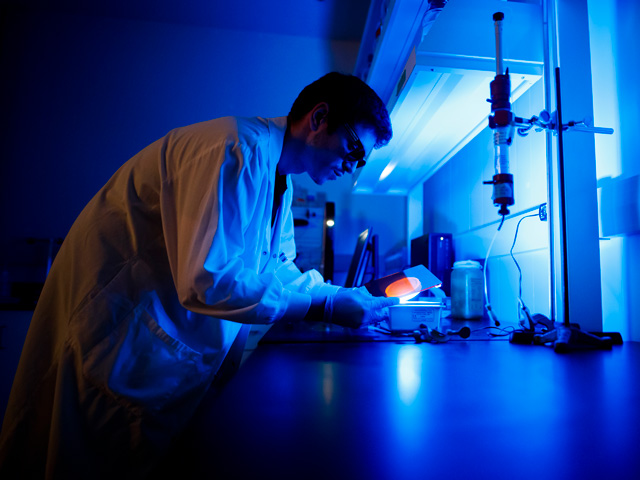
The last half-century has seen phenomenal advances in drug development to treat human disease, but many patients still remain in need of new therapies. Basic research in molecular and cellular biology elucidates how biological molecules function and interact. Moreover, this research reveals the mechanisms of human disease and as well as novel therapeutic targets. Biomedical advancements such as small molecule drugs, medical devices, biologics, and diagnostic tools are critical for advancing human health and well-being.
At Toronto Metropolitan, we have many research programs that seek to understand the molecular basis of human diseases such as cystic fibrosis, cancer, diabetes, and infection as well as develop innovative treatment strategies to treat these conditions.
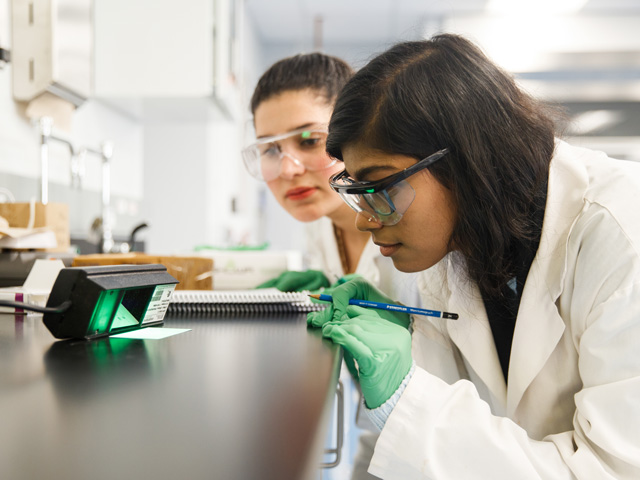
Living organisms are hierarchical in structure. At the base of this hierarchy are the molecules that make up cells, tissues and organisms, and that eventually mediate how organisms behave and interact with each other. Thus, to understand how life works, what goes wrong in a disease and how to develop therapies, we have to study the molecular processes that occur within cells and how cells integrate these to make a functional organism like a person. Importantly, genes, in the form of DNA, encode the information necessary to build molecules, cells and ultimately organisms capable of reproducing and maintaining life.
At Toronto Metropolitan, we focus on elucidating the basic building blocks that make up cells. From DNA to the organelles that they code for, we are using this information to understand ways of combating disease and infection.
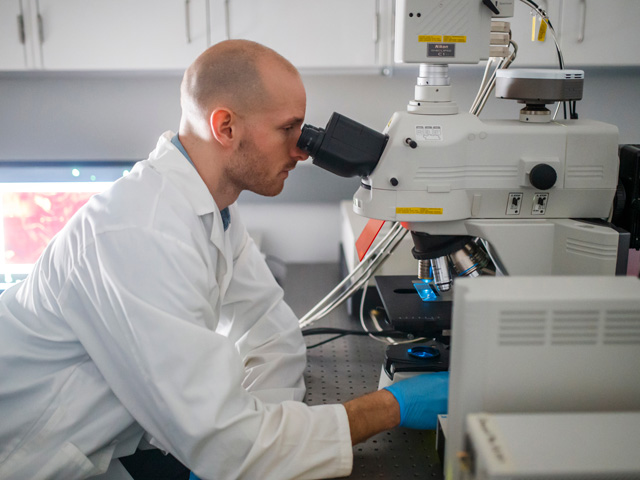
Between all states of matter exist a variety of surfaces and interfaces that once understood can lead to a breakthroughs in the way we manipulate the nanoscopic and microscopic worlds. For example, understanding how surfaces interact with light allows us to develop novel materials; while protecting a variety of surfaces prevents unwanted bacterial growth which improves human health.
At Toronto Metropolitan we focus on studying microbial growth on surfaces. In addition, by closely examining the interfaces between surfaces we develop novel and more robust technologies.
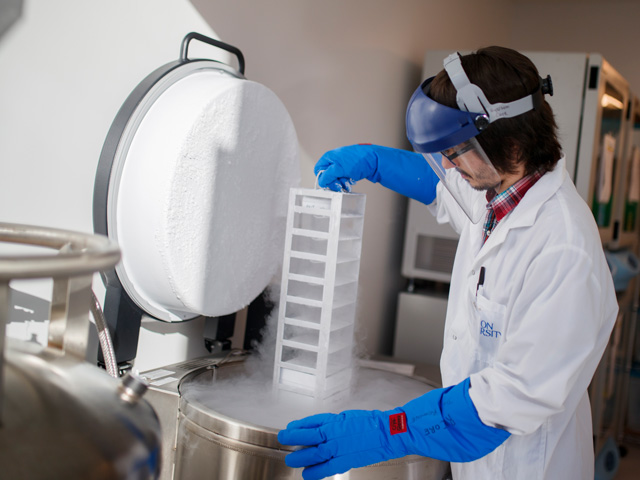
Understanding how microbial pathogens cause disease is the key to developing prevention and treatment strategies for pathogenic infections.
At Toronto Metropolitan, we investigate both bacterial and viral pathogens with a focus on pathogen-host interactions, virulence gene expression and regulation, antibiotic resistance and biofilm formation in infections. Our research groups employ powerful tools from molecular biology, cell biology, microbiology, immunity and virology to address critical questions about the molecular basis of pathogenesis.
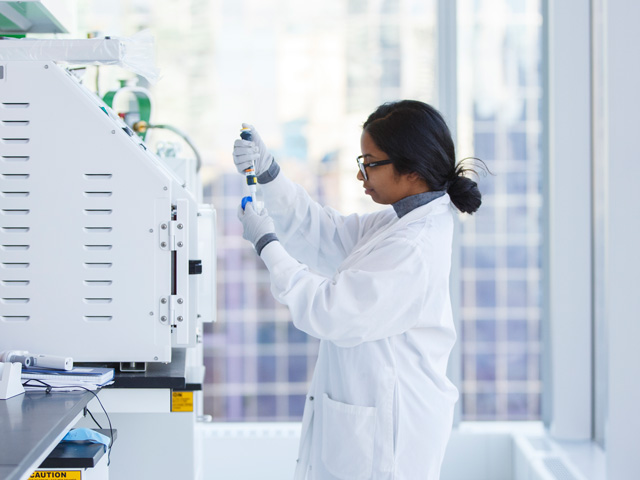
The ability to manipulate the structures and electronics of molecules is the essence of synthetic chemistry. Synthetic Chemistry has gifted us with plastics & polymers, advanced materials and prescription drugs to treat human infection or disease.
At Toronto Metropolitan we focus on synthesizing a variety of molecules that are used for catalysis, advanced materials and medicine.
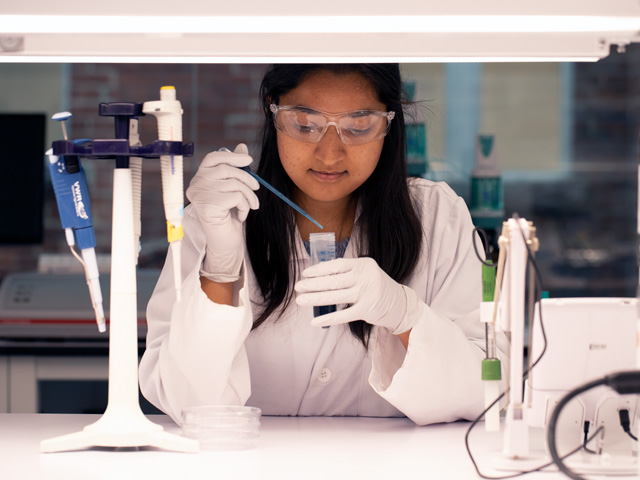
While food and materials may seem unrelated; food is merely a material that can be consumed to provide nourishment. By studying food the same way we analyze materials we are able to generate a profound understanding about how food tastes, how food can be stored, and it's true nutritional value.
At Toronto Metropolitan, food is yet another material that we analyze and appreciate with the same robustness as novel materials themselves.
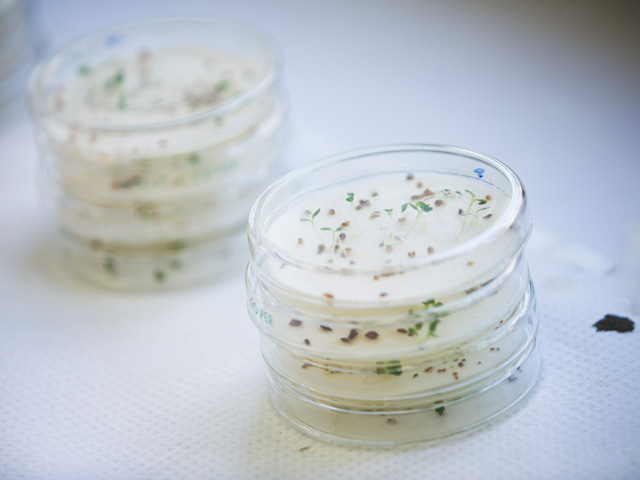
Whether through anthropogenic or natural causes, the world is constantly evolving. The need to better understand and coexist in our ecosystem is essential for global health, standards of living and our future sustainable economy.
At Toronto Metropolitan we focus on global health, by studying our adapting lakes and river systems; understanding how plants adapt to environmental change and developing new technologies that help to mitigate human impact by providing clean sources of energy.
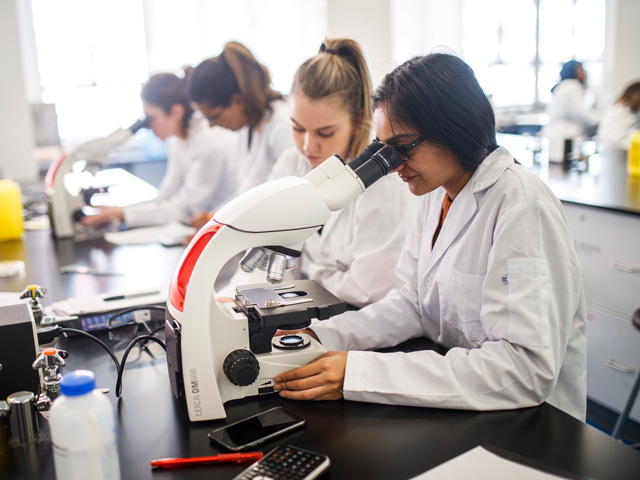
As society adopts new forms of communicating (wireless and social media), the way students communicate, engage and learn is also changing.
At Toronto Metropolitan, we focus on introducing and studying the impact of novel technologies in the classroom. Additionally, we appreciate that having students develop an interest in science requires us to reach them at a young age in the form of outreach at the elementary and secondary levels.